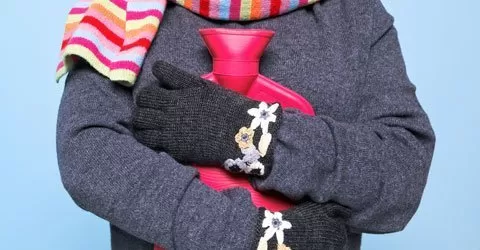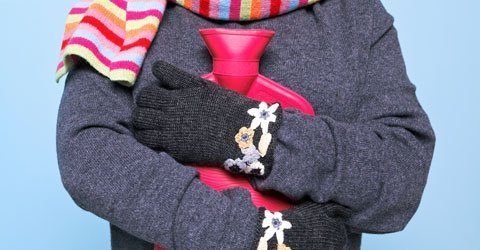With colder weather on the way, it’s really important to remain fit and healthy at this time of year to help your body fight off the common colds and viruses that are circulating. Eating well, wrapping up warm and carefully planning your journeys are simple ways stay safe during winter. This blog highlights some of the first aid tips you may require over the winter months and potential hazards to look out for. It is essential to maintain body heat during winter to avoid hypothermia. Ideally, the temperature indoors should be at least 18 degrees. If you cannot afford to keep the heating on all winter (it can really add up!) then keep adding the layers, have accessible blankets around the house and hot water bottles which are particularly useful and a cost-effective way to keep extra warm indoors. If you are venturing outside, ensure to wrap up warm and add layers such as, hats, scarves and gloves to prevent you from getting too cold. Unfortunately, hypothermia is a huge danger at this time of year. The number of hypothermia deaths has doubled over the last five years. It is really important to learn the signs of hypothermia which include pale and cold skin, shallow breathing, a weak pulse and disorientation. If you suspect someone is suffering from hypothermia, then it is vital to encourage the to undertake the following: – Slowly restore warmth and get indoors if they are not already – Begin CPR if necessary – If they are conscious, give them a warm drink such as – Keep their body temperature up by wrapping them in blankets – Wear several light layers rather than one chunky layer – Regular hot drinks and meals – Be very careful around open fire – Close the curtains after dark to keep away drafts – Keep your hands clean to reduce germs spreading – Stay active – Keep windows closed at night As mentioned in the introduction, cold weather can have a detrimental impact on your health. There are many preventative measures that can be taken to ensure that you are fit and healthy throughout the winter months and avoiding sickness: – Enquire about getting the flu jab – Take multivitamins – Maintain a healthy diet – Have hot meals and drinks where possible – Invest in a hat, scarf and gloves and a good coat – Exercise and keeping active helps to maintain body heat amongst many other health benefits When the temperature drops to below 8 °C some people particularly vulnerable people such as young children, people with existing health conditions, people with a low income and elderly people become at risk of various problems: – Heart attack – Stroke – Pneumonia – Falls and injuries – Hypothermia During the winter, travelling can become particularly hazardous. Take extra care when walking outdoors as footpaths can become slippery. Invest in a sensible pair of shoes with good grip to help to prevent slips and trips. If you are driving, it is important to be aware that the roads can become slippery and dangerous. It is a good idea to have a winter first aid kit stocked in the car including blankets and water in case you break down. Other driving essentials during this time of year include an ice scraper, winter screen wash, de-icer and a foil blanket. As well as ensuring that you take all of these measures to stay healthy, please look out for vulnerable people and do what you can to help them to keep warm. Perhaps consider donating blankets, hot water bottles and tinned food to those in need. Drive calmly and safely to prevent being involved in an accident. If you are interested in learning more about learning basic first aid skills, please book yourself a place on one of our open first aid courses.

Cold Weather
Keep warm
Further tips for keeping warm and staying safe:
Keep healthy and fight the cold
Travel safely
We hope that this blog has given you some basic ideas about how to stay safe during winter.


